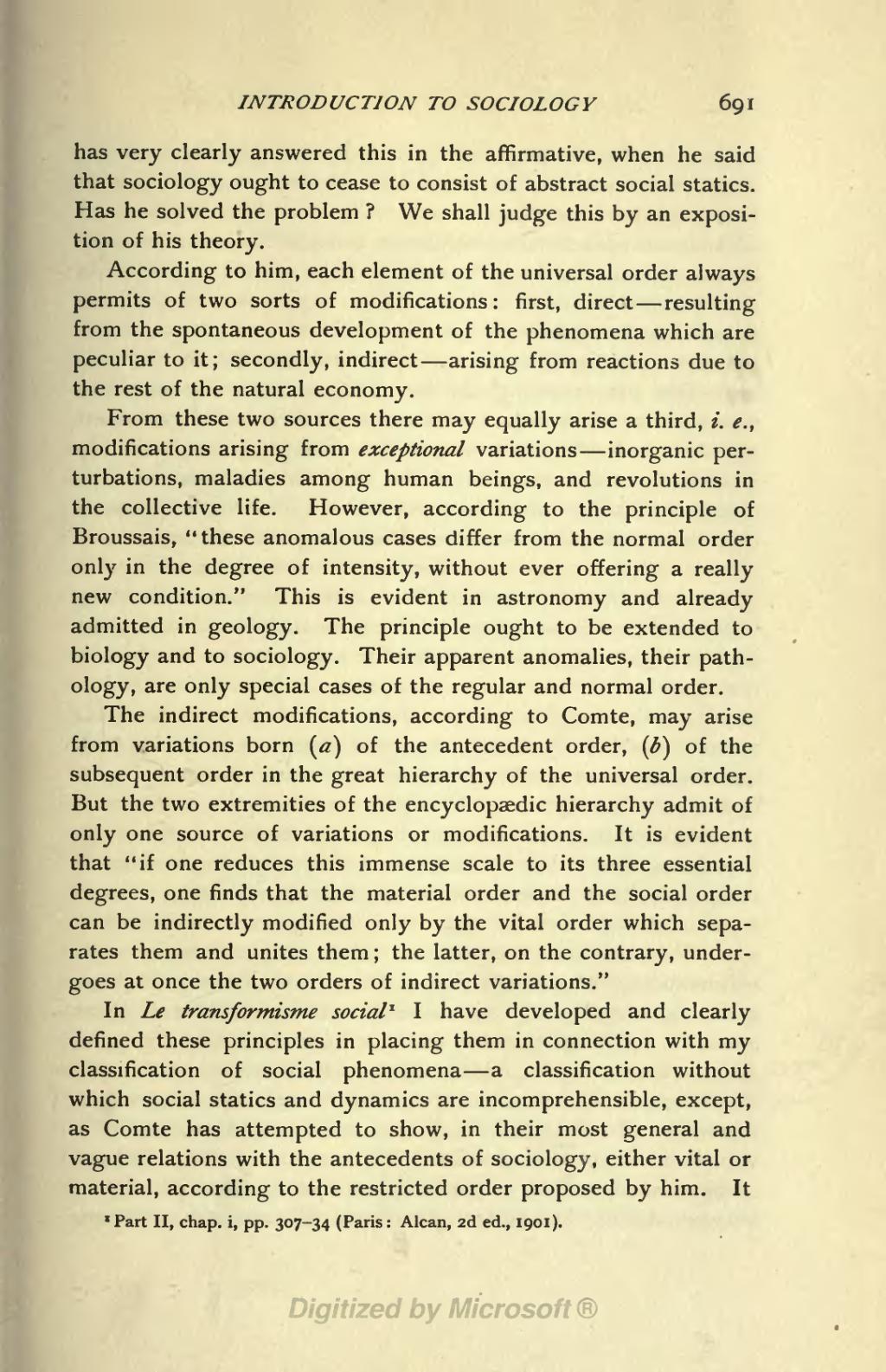INTRODUCTION TO SOCIOLOGY 691
has very clearly answered this in the affirmative, when he said that sociology ought to cease to consist of abstract social statics. Has he solved the problem ? We shall judge this by an exposi- tion of his theory.
According to him, each element of the universal order always permits of two sorts of modifications: first, direct resulting from the spontaneous development of the phenomena which are peculiar to it; secondly, indirect arising from reactions due to the rest of the natural economy.
From these two sources there may equally arise a third, i. e., modifications arising from exceptional variations inorganic per- turbations, maladies among human beings, and revolutions in the collective life. However, according to the principle of Broussais, "these anomalous cases differ from the normal order only in the degree of intensity, without ever offering a really new condition." This is evident in astronomy and already admitted in geology. The principle ought to be extended to biology and to sociology. Their apparent anomalies, their path- ology, are only special cases of the regular and normal order.
The indirect modifications, according to Comte, may arise from variations born (a] of the antecedent order, (b~) of the subsequent order in the great hierarchy of the universal order. But the two extremities of the encyclopaedic hierarchy admit of only one source of variations or modifications. It is evident that "if one reduces this immense scale to its three essential degrees, one finds that the material order and the social order can be indirectly modified only by the vital order which sepa- rates them and unites them ; the latter, on the contrary, under- goes at once the two orders of indirect variations."
In Le transformisme social 1 I have developed and clearly defined these principles in placing them in connection with my classification of social phenomena a classification without which social statics and dynamics are incomprehensible, except, as Comte has attempted to show, in their most general and vague relations with the antecedents of sociology, either vital or material, according to the restricted order proposed by him. It
Part II, chap, i, pp. 307-34 (Paris: Alcan, 2d ed., 1901).
